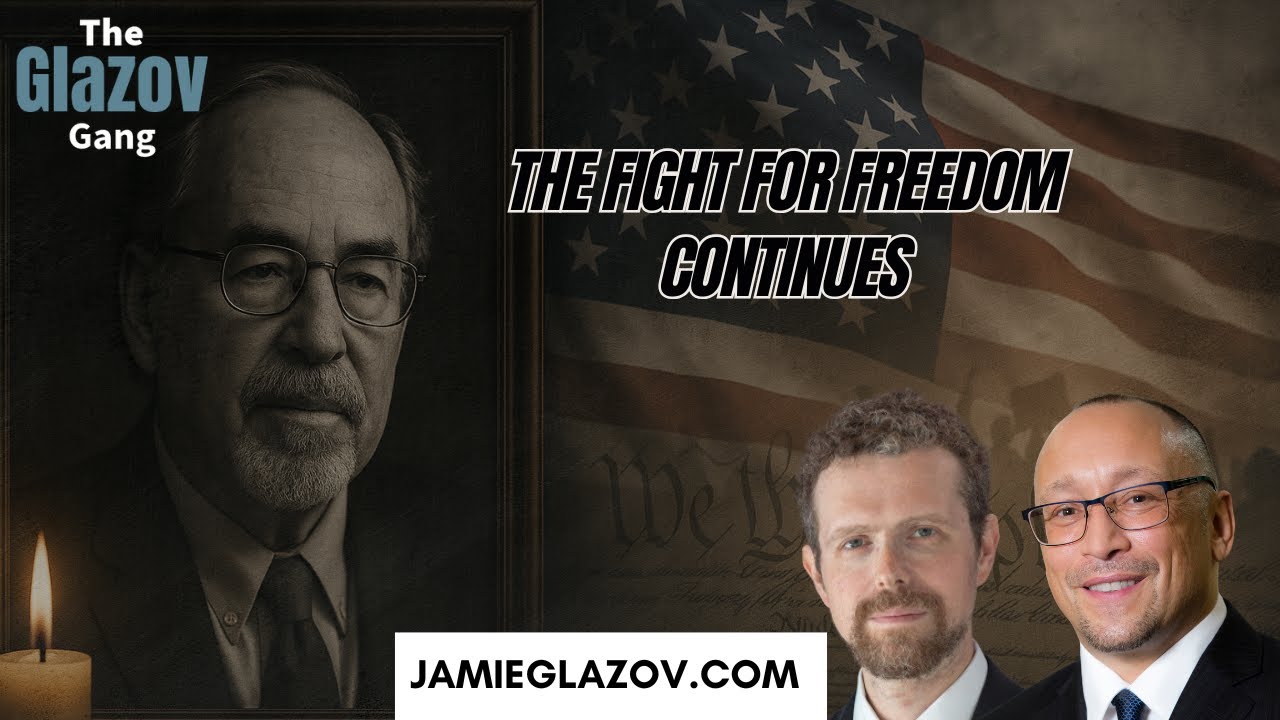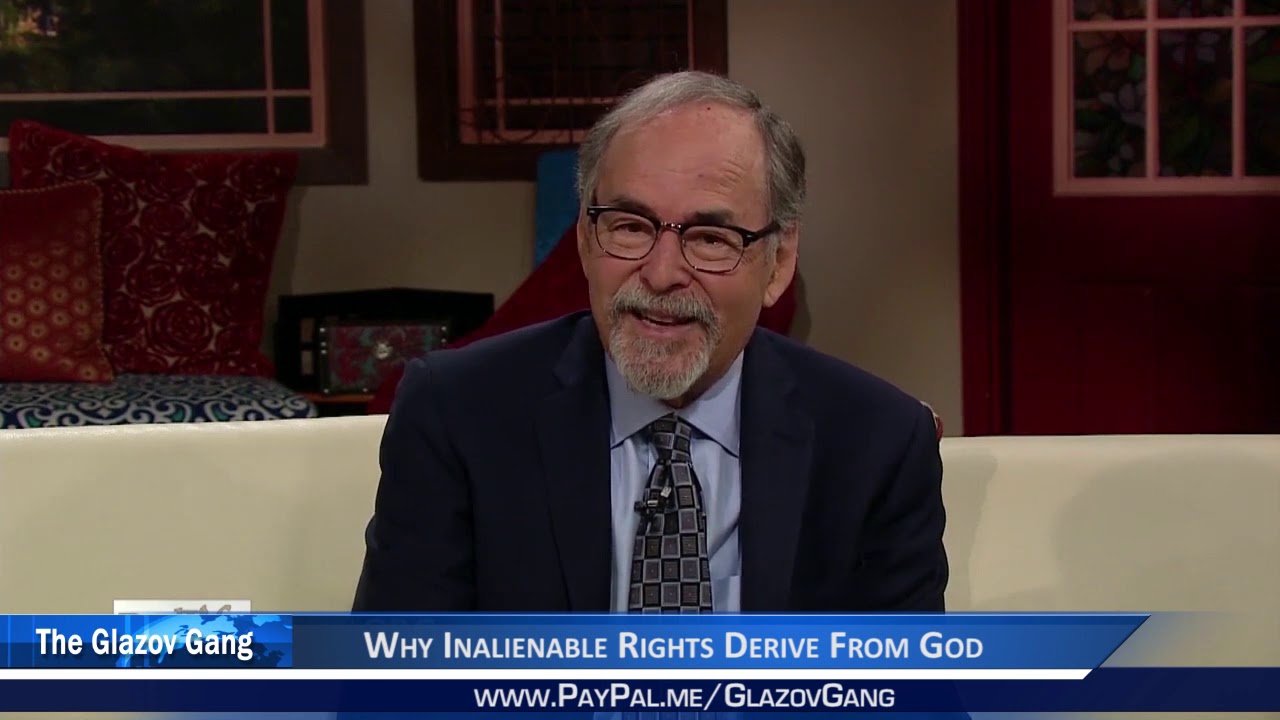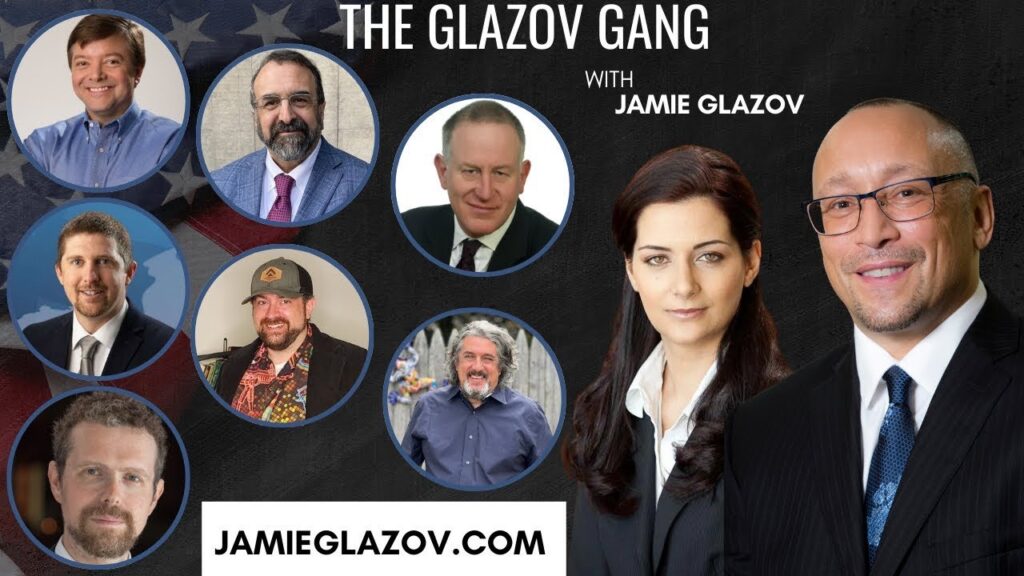Subscribe to the Glazov Gang‘s YouTube Channel and follow us on Twitter: @JamieGlazov.
Please donate through our Pay Pal account.
Order Jamie Glazov’s new book: Jihadist Psychopath: How He Is Charming, Seducing, and Devouring Us.
This new Glazov Gang episode features David Horowitz, the founder of the David Horowitz Freedom Center and the author of the new book, Dark Agenda: The War to Destroy Christian America. His new book, Blitz: Trump Will Smash the Left and Win, will be published by Humanix Books later this year.
David discusses Why Inalienable Rights Derive From God, and explains why the Left has contempt for those who believe in him.
Don’t miss it!
And check out the whole interview with David on Real Life below — from which the above clip is taken.
Subscribe to our YouTube Channel and to Jamie Glazov Productions. And follow us on Twitter: @JamieGlazov.












4 Responses
I agree with David on most issues, and admire what he has done. He is a champion for human rights and a fearless fighter for freedom of speech. But I can’t agree with him that rights are either “inalienable” or “derive from God”. Rights are simply those values and rules which freedom loving people deem necessary to live in a pluralist secular society free from tyranny – and which they are prepared to claim and defend. Although those rights were written into Western Constitutions by our founding fathers, in this politically correct age, they are being eroded by subversive Leftists and Muslim infiltrators.
Like David, I’m also an agnostic and came from the Left; but although I have no religious beliefs, I believe in freedom of religion, freedom of speech, freedom of conscience, and all the other liberties enshrined in our Constitutions and the Universal Declaration of Human Rights. And I agree with David that those freedoms originated from Judeo-Christian ethics, and that we must respect each other and the right of others to believe in a God – or not to believe as we wish. But that doesn’t prove those rights came from some supernatural deity. All rights are products of the human intellect and conscience, and will need to be defended continually against those with a political or religious axe to grind, and hatred in their hearts for those who do not share their bigoted, narrow minded, and totalitarian views of the world.
David says “If [our rights] are given by government, they can be taken away”. But that is exactly what is happening. All across the Western world, do-gooders and subversives in governments are taking away our rights by legislation, because there is insufficient political will to stop them. Evoking a divine origin for those rights, and praying for their preservation won’t help one iota. Our enemies will just laugh in our faces. It means that we simply must fight harder to stop this theft of the rights that we claim and saw fit to include in our governing documents.
Unfortunately, the Left now dominates education, and most people no longer understand the importance of our basic freedoms; and are not sufficiently motivated to get off their backsides and join a political movement to stop the rot. They will march in the streets in their thousands to “support gay marriage” and “save us from extinction from climate change”, but are too apathetic or ignorant to save our most precious liberties – freedom of conscience, speech and religion.
You of course have the right to believe or disbelieve in God. Yet if there is no God, no higher authority than man, then there really is no difference between freedom or tyranny, free speech or political correctness, freedom of religion or forced religion or non-religion, good or evil. It’s just preferences, cultural constructs. In other words whether one chooses to help or harm others really makes no difference if there is no God. Yet both you and I know it really does make a difference how we treat people. I encourage you to think deeply about this issues for it really does matter what we believe, ideas have consequences.
My comment above is to Agnosticus.
rooare,
With respect, you claim that unless people believe in a “higher authority” they are not capable of differentiating between good and evil. But that simply demeans human beings, and denies that we are capable of making independent moral judgments. What mainly sets humans apart from the rest of the animal kingdom, is our intellect. And that results from our large cerebral cortex or outer brain, which has given us the capability of independent rational thought, and abstract logical analysis. And that is how every one of the ethical and moral tenets of each and every religion has come about – by humans alone, exercising their powers of reason and judgement together with compassion. Of course, people are free to believe otherwise, but that is simply a delusion. Religions are faiths, or beliefs without proof.
You might argue that I’m just abiding by the Golden Rule, which is one of the hallmarks of Christianity. But we would be kidding ourselves if we believed that “treating others as we would wish them to treat us”, originated as a command from God – or even with Christianity (Matt 7:12). All religions are syncretic, ie they borrow some of their tenets from earlier creeds. And the Golden Rule must have operated – to some extent at least – in most human societies for millennia before any of the present-day religions evolved. Otherwise the human race would have gone extinct long ago – or become a totalitarian culture like Islam, wanting to murder anyone who disagrees with it.
It certainly does “make a difference how we treat people”. I have not only thought deeply about it, but have tried to live by the Golden Rule all my life. And that’s not because I believe some divine entity is looking over my shoulder, but simply because it is the right thing to do.
As you say, “Ideas have consequences”. And when human beings continue to rely on existential help to solve their problems, one of the consequences is they become trapped in a paradigm of dependency, and don’t bother to think for themselves. Psychologists refer to it as “longitudinal consistency of personality”, or becoming “set in our ways”.
When Wilberforce in England and Lincoln in the US first spoke out about the evils of slavery, their ideas were opposed and ridiculed – even by some of the churches (which had investments in sugar cane plantations). But eventually, after slave revolts in the Caribbean and parliamentary reform in Britain – and a bloody civil war in the US – the idea of freedom for all people became accepted by enough voters to have slavery abolished.
And certainly ideas are also important; particularly the idea of being free to say and believe what we like, without fear of retribution from those who do not share our beliefs, or these days from some iniquitous man made law under the guise of ‘hate speech’. In the US Declaration of Independance, the ideas of “Life, liberty and the pursuit of happiness” are proclaimed as “unalienable rights”. I believe that those rights are natural and inherent, but not inalienable. As President Reagan reminded us (and David has quoted in his book), “Freedom is never more than one generation away from extinction”, and so it must be continually defended against those who seek to destroy our culture.